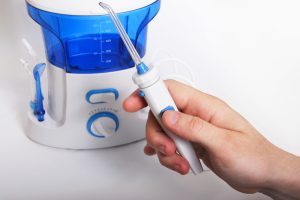A Strong Smile That Lasts: How to Care for Your Dental Implants
Dental implants offer an incredibly convenient tooth replacement solution that seamlessly integrates with your natural teeth. With proper care, these remarkable restorations can provide a lifetime of oral health and confidence.
Howell implant dentist, Dr. Kyle Polasek and the team at Polasek Digital Dentistry & Schaefer Dental Group have developed this comprehensive guide on how to care for dental implants and help you maintain your dental implants. Have questions? Contact our Livingston County dental practice at 517-546-8983 today.
Caring for Your Dental Implants
Basic Oral Hygiene Habits
Maintaining excellent oral hygiene is crucial for the longevity of your dental implants. Key habits to maintain dental implants include brushing teeth twice daily, flossing every day, and using antiseptic mouthwash to eliminate bacteria.
Brushing Your Teeth
Effective brushing is critical for implant maintenance. Use a soft-bristled toothbrush and choose toothpaste specifically formulated for implants. Be sure to gently brush all tooth surfaces, including tops, sides, chewing surfaces, and gum lines.
Flossing
Flossing removes plaque and food particles from hard-to-reach areas. Use a floss threader or special implant-specific dental floss. Consider using a water flosser for thorough cleaning, focusing on areas around the implant post.
Rinsing Your Mouth
Mouth rinsing helps remove food particles and bacteria. Use an antiseptic mouthwash designed for dental implants, swishing for 30-60 seconds to ensure complete mouth coverage. Rinse with water afterward.
Routine Visits to the Dentist
Scheduling professional cleanings every three to six months is essential for removing plaque and tartar that at-home care may not adequately address. Annual X-rays are recommended to monitor the bone structure around the implant and detect early signs of bone loss or peri-implantitis. Regular bite assessments during dental exams help ensure proper alignment and prevent undue stress on the implant.
Nutritional Management
Consuming a balanced diet of soft foods rich in vitamins and minerals is essential for maintaining healthy gums and supporting the longevity of your dental implants. It’s advisable to avoid hard or sticky foods that can damage the implant crown or abutment. Additionally, limiting sugary and acidic foods helps prevent gum inflammation and other oral health issues.
Avoid Harmful Habits
It is important to avoid harmful habits. For example, smoking can impede the healing process and increase the risk of peri-implantitis and implant failure. Reducing alcohol consumption is also recommended, as it can negatively affect oral tissue health and healing after surgery. Furthermore, habits like chewing on ice or hard objects should be avoided, as they can damage the prosthetic components.
Recognizing Warning Signs
Patients should be aware of symptoms that may indicate potential complications, such as bleeding gums, persistent swelling, discomfort, or loosening of the implant after dental implant surgery. Early detection of these signs allows for prompt treatment to prevent further issues. Staying vigilant about these warning signs contributes to the long-term success of dental implants.
Problems That Can Occur Without Dental Implant Maintenance
Potential complications that may occur without proper dental implant care include:
- Peri-implantitis: A gum disease affecting implant tissue with symptoms including bleeding, swelling, and redness. Potential treatments include antibiotics, deep cleaning, and surgery in severe cases.
- Loose Implant: This can result from a loose abutment screw or implant failure and requires immediate professional evaluation.
- Broken Restoration: Dental crowns, dental bridges, or dentures may become loose, cracked, or broken due to wear or trauma. Repair or replacement may be necessary.
- Gum Recession: This exposes the implant to bacteria and can lead to implant failure. Potential treatment includes gum grafting surgery.
- Bone Loss: Neglecting dental implant care can lead to bone loss surrounding the implant, which can compromise its stability and potentially result in implant failure.
- Infection: Poor oral hygiene can lead to bacterial infections around the implant site, which may cause inflammation and other complications if left untreated.
- Implant Failure: This can occur due to various factors such as poor osseointegration, infection, or excessive forces on the implant.
Prompt treatment is crucial to prevent further damage and ensure implant longevity.
Frequently Asked Questions
It is recommended that you visit your dentist every six months after getting dental implants. These regular check-ups are crucial for monitoring the health of your implants and maintaining the surrounding natural teeth. Additionally, these visits allow for early detection of potential issues, ensuring the longevity of your dental implants.
While you can use a regular soft-bristled toothbrush, most dentists, including Dr. Polasek, recommend specialized toothbrushes designed for dental implants. It’s also advisable to use toothpaste specifically formulated for implant care, as these products are gentler on the implant surfaces. Using these specialized tools helps protect the implant post and surrounding gum tissue, promoting better long-term oral health.
No, food does not get trapped under a properly placed dental implant. This is because the implant base fuses with the jawbone through a process called osseointegration, creating a seal that prevents food from entering. Dental implants are designed to function just like natural teeth, allowing you to eat and clean your teeth normally.
Yes, plaque can accumulate on dental implants similar to natural teeth. Regular removal of plaque through proper oral hygiene practices is essential to prevent complications after implant surgery. If neglected, plaque buildup can lead to peri-implantitis, a condition that may cause inflammation and potentially lead to implant failure.
The best toothpaste for dental implants should have low abrasive particle content and a low RDA (Relative Dentin Abrasivity) value, preferably under 70. Some specialized formulations may contain antibacterial agents or enzymes that help break down bacteria. It’s important to consult with your dentist regularly, as they can recommend a toothpaste that’s best suited for your specific implants and oral health needs.



